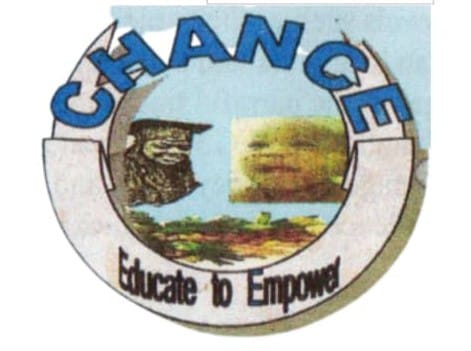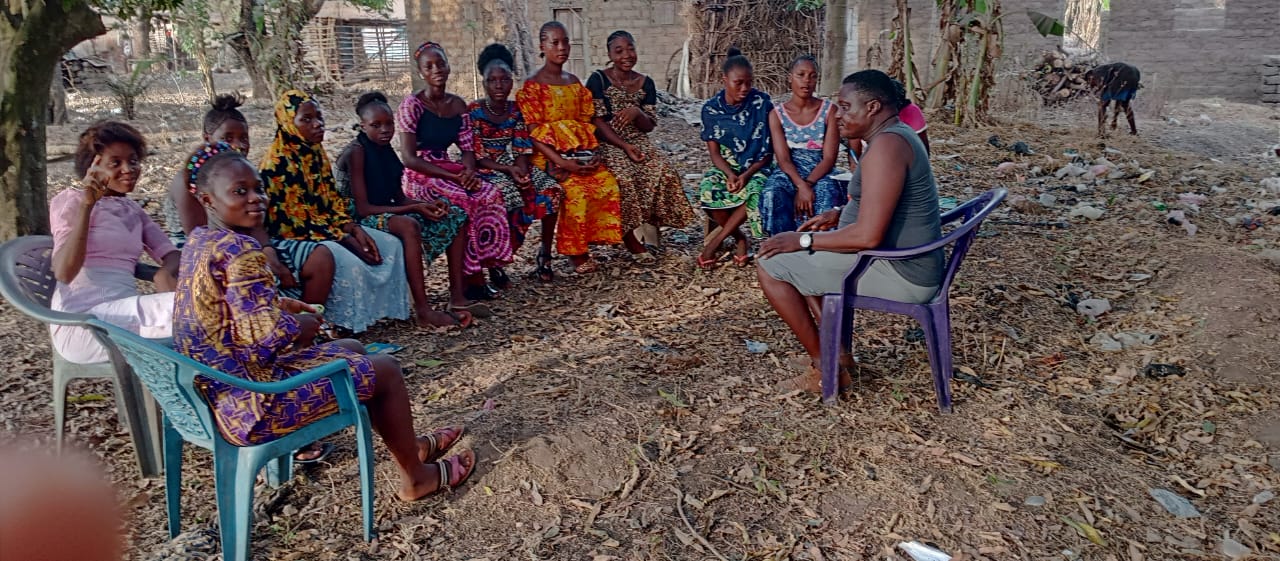Movement Matters #20 – Joseph B.M. Sowa, Centre For Humanitarian Advocacy Network – Community Empowerment (CHANCE)
This month, Rev. Joseph B.M. Sowa, a passionate rights activist and founder of the Sierra Leonean community-based organization CHANCE, shares his journey and dedication to community-led development. In a new interview, he discusses the challenges Sierra Leone faces, and his ongoing efforts to combat female genital mutilation (FGM) through education and advocacy. Rev. Sowa also emphasizes the importance of listening to communities and ensuring everyone has a voice in developmental activities.
Sera Bulbul: Can you give us some information about your background, and how you got to where you are?
Rev. Joseph B.M. Sowa: I’m Joseph B. M. Sowa. I’m a rights activist and the founder of the Sierra Leonean community-based organization called Centre For Humanitarian Advocacy Network – Community Empowerment (CHANCE). I love working with communities in multiple areas, mainly focusing on three things: education, health, and agriculture.
On health, I’ve been researching female genital mutilation (FGM) for the past 20 years. It has been a risk to learn about this topic, but today I have vast knowledge of FGM and travel to advocate against the practice.
I also advocate for the value of education, especially for young girls. I believe in community-led development. For too long, most communities in Sierra Leone have been marginalized. They are not seen. People need to be involved in the developmental activities in their communities.
Sera: Can you set the scene for us a little bit, Joseph? What main challenges do people in Sierra Leone face that you are working to address?
Joseph: One challenge that we are facing is how to network and build partnerships when traveling across Sierra Leone is so difficult. I have been operating to do self-help for people, but the road to travel is very rough.
Getting access to quick information on development is also not easy. In remote areas, even if you have a mobile phone, accessing a charging center is a problem. Where I’m operating, people travel up to six miles and leave their phones to charge there all day, and at the end of the day, they will call somebody on a bike to bring their phones back to them.
Many communities are facing challenges in terms of agriculture, where they don’t have access to the tools needed to plant crops.
Addressing FGM requires continuous education and advocacy because there are so many misconceptions about the intricacies of FGM. Even recently I was at the radio station and the community where I’m staying describing the differences between FGM and Bondo Society. People have very much blended this Bondo tradition with FGM in general. I’m now 47 years old and I know the integrity of the Bondo society and their traditions. There are challenges in getting access to information to learn all of the differences.
Sera: What inspires you to keep going every day, when it’s emotional or challenging?
Joseph: I have the spirit of a humanitarian, I have the spirit of equality. You might be wondering what inspired me to campaign against FGM? I see it as being against humanity and as human rights abuse. I see that it is an insult to God. In secondary school, I started preaching the Bible. So I also have a religious inspiration. I feel that I have been called to protect women and fight for their rights.
Sera: What is your vision for the future of community-led development in Sierra Leone, and how do you see yourself contributing to that vision?
Joseph: In the first place, I want to see young girls freed from this practice. I want to see Sierra Leone freed of this practice. I want to see a Sierra Leone where everybody knows their rights and responsibility. I want to see Sierra Leone as a unique country without human torture, humiliation, aggression against women, girls, and boys.
I also want to see myself as one of the vessels that created an impact for young girls to realize their rights, realize their future. I want to see Sierra Leone create a safe space for girls where they can go and discuss their personal affairs relating to their marriage issue, health issues.
For now, I’m contributing in diverse ways. One, as a human resource person, I make myself available to interact with people to educate them on the dangers of FGM and what could be the better thing that will bring a better, brighter future for our young girls and children. That’s one of my contributions to this nation and the other part of it is to pave the way for young girls’ education and youth also to get the best education that will lead them to develop themselves in the best way. I want to see young girls who talk about education instead of FGM
I see myself as someone with a role to play for Sierra Leone, and that’s what I’m doing. When you serve humanity, humanity will respond to you. I’m here to serve my nation.
Sera: What are some challenges and successes you face in your work?
Joseph: Looking for funding is a big challenge for me. We don’t have an office space right now. Also human resources – I have volunteers that I work with. When there are activities, I always include them because we all want to help our people. In terms of the office space, the cost is discouraging, but it is something that I am actively looking for.
Before you get your success I know you have to go through some struggles. Since we don’t have funding of our own, any successes have come out of our own pockets.
I consider it a big success that we are still operating. My organization is known for our work around FGM.
Sera: When you reflect on your life and all of this advocacy work you have done, what are you most proud of?
Joseph: I am proud of the work I’m doing. The result that’s coming out of it is positive, but I won’t hide that I have challenges. I’m proud of it and it gives me joy in my life.
Anything that you are doing, have the belief, the faith, and the conviction that you will succeed. Believe that people will know you for what you are doing when you are doing the right thing.
Sera: Thank you so much. Let’s now shift our conversation to talking about MCLD. How did you learn about the Movement and what inspired you about it?
Joseph: I came across MCLD because I work with a lot of organizations whose focuses are the same. The Bible says, “Strengthen thy brethren.” and I live this.
I came across MCLD through an organization that I was working with that was already a part of it. When I came to my first MCLD Sierra Leone meeting, I showed my knowledge of health, and now I am part of MCLD. MCLD has even come to visit my community and met most of the people I am working with. Now, they know the challenges that I am going through.
In terms of leadership style, I think MCLD is projecting a good avenue. I’m comfortable with their policies and have learned a lot from my fellow MCLD members.
Sera: What advice would you give someone who was new to trying to do community-led development
Joseph: Through MCLD I have learned a lot. If someone is new to MCLD or wants to work with a community, I would advise the individual to listen more to the community. Talk more to them. If he or she listens to the community, then he or she will know the right track to follow.
Make sure that everyone in that community has a right to be part of the vision-making, be it a child or an adult. When they say stakeholders, think beyond authorities. Everybody is a stakeholder, listen to everybody and they will get you the answer that you want.
The are four main points I’d like to share with my readers are:
- Emphasize the right of the people in communities in terms of decision making and planning of development activities.
- Implementing partners should give preference to the stakeholders .
- Practicing FGM is harmful to the health of human nature and under the law of torture is a crime.
- We must pay more attention to education and development activities for a brighter hope for young people (youths).




